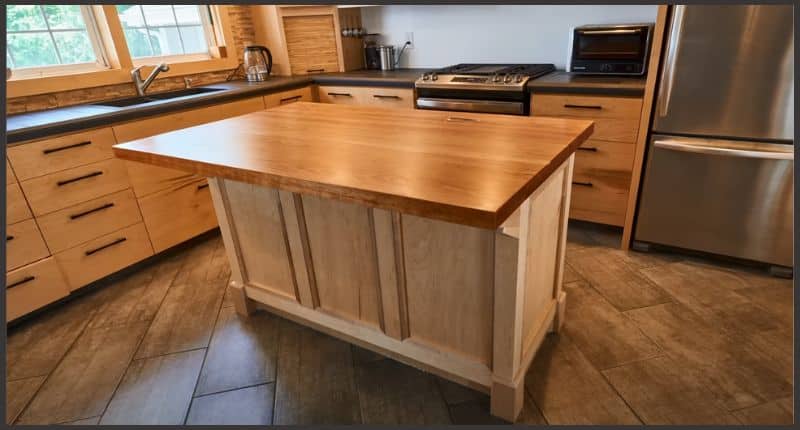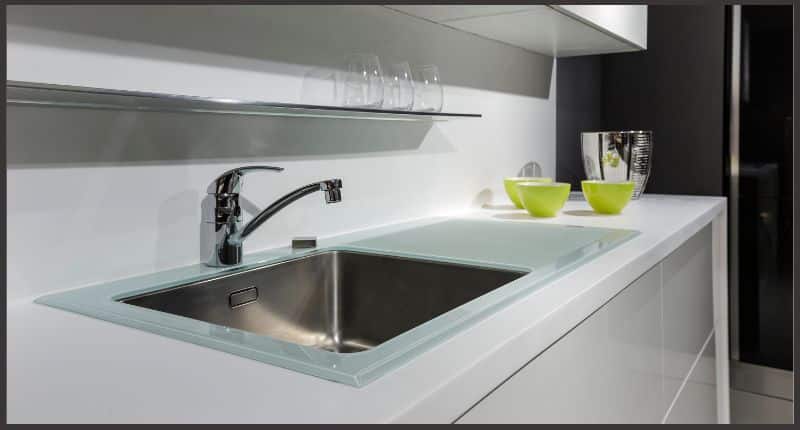Welcome to our guide on kitchen tips! Whether you’re a seasoned chef or a novice cook, we understand the importance of efficiency, organization, and creativity in the heart of your home. In this article, we will provide you with a collection of valuable tips that will help you navigate your kitchen with ease and elevate your culinary skills. From clever storage solutions to time-saving techniques, we’ve got you covered. Get ready to unlock the secrets of a well-functioning kitchen and discover how small changes can make a big difference in your cooking experience. Let’s dive in and transform your kitchen into a space where culinary magic happens!
Table of Contents
Tips in the Kitchen: Mastering the Art of Cooking
Introduction
When it comes to the kitchen, everyone wants to be a pro. Whether you’re a seasoned chef or a beginner cook, there’s always something new to learn. But with the abundance of recipes and cooking tips available online, it can be overwhelming to know where to start. Fear not! In this article, we’ll explore some valuable and practical tips that will help you become a kitchen master. So put on your apron, sharpen your knives, and let’s dive in!
The Importance of Organization
Have you ever found yourself scrambling through your kitchen drawers, searching for that one specific ingredient or utensil in the middle of preparing a meal? Don’t worry; you’re not alone. Many home cooks neglect the importance of organization in the kitchen, leading to unnecessary stress and wasted time.
To stay organized, start by decluttering your kitchen. Get rid of any unnecessary items and invest in some storage containers and racks to keep your ingredients and cookware neatly arranged. Use labels to easily identify different items and group similar ingredients together. This way, you’ll always know where to find what you need, making your cooking process more efficient and enjoyable.
Mastering Knife Skills
One of the most fundamental skills in the kitchen is knowing how to handle a knife with finesse. A sharp and well-maintained knife can make all the difference in your cooking experience. Not only does it make your cutting tasks easier, but it also ensures that your ingredients are cooked evenly.
Invest in a good quality chef’s knife and learn proper knife techniques such as chopping, dicing, and slicing. Practice your knife skills regularly to improve your speed and precision. Remember to always keep your knife sharp by honing it before each use and sharpening it when necessary.
Understand Flavors and Seasonings
Cooking is not just about following a recipe; it’s about understanding flavors and knowing how to balance them. Experiment with different herbs, spices, and seasonings to elevate the taste of your dishes. Don’t be afraid to combine unusual ingredients – you might stumble upon a new favorite flavor combination!
Additionally, learn how to use salt correctly. Salt is a powerful enhancer that can bring out the natural flavors of ingredients. However, it’s crucial to find the right balance, as too much salt can ruin a dish. Taste your food as you cook and adjust the seasoning accordingly. Remember, cooking is an art, and flavors are your palette.
Efficient Meal Planning
If you find yourself spending too much time in the kitchen or resorting to takeout more often than you’d like, it’s time to incorporate efficient meal planning into your routine. Spend a few minutes each week to plan your meals in advance. This will not only save you time but also money and effort.
Start by creating a meal calendar and make a shopping list based on the ingredients needed. Consider utilizing leftovers creatively to minimize food waste. Prepping ingredients ahead of time, such as chopping vegetables or marinating proteins, can significantly speed up your cooking process during the week.
Keep Your Kitchen Clean
A clean kitchen is a happy kitchen. Maintaining a clean and tidy workspace is essential for smooth cooking experiences. Always clean as you go to avoid overwhelming messes at the end of meal preparation.
Wipe down your countertops regularly, wash utensils and dishes immediately after use, and sweep the floor to get rid of any food scraps. Not only will this keep your kitchen looking pristine, but it will also minimize the risk of cross-contamination and promote good hygiene.
Practice Makes Perfect
Finally, the most important tip in the kitchen is to never stop learning and practicing. Like any skill, cooking requires consistent effort and experimentation. Challenge yourself to try new recipes, techniques, and ingredients. Don’t be discouraged if you encounter failures along the way – they’re all part of the learning experience.
Take inspiration from renowned chefs and home cooks, attend cooking classes, or even host a dinner party to showcase your culinary creations. Embrace the joy of cooking, and with every meal you prepare, you’ll get closer to becoming a kitchen master.
Conclusion
Becoming a skilled cook doesn’t happen overnight, but with these tips in your arsenal, you’re well on your way to mastering the art of cooking. By staying organized, honing your knife skills, understanding flavors, planning your meals efficiently, keeping your kitchen clean, and embracing continuous learning, you can create delicious and memorable dishes to impress your loved ones.
Remember, the kitchen is a place of creativity and nourishment. Enjoy the process, have fun, and let your passion for cooking shine through. So put these tips into practice, and soon enough, you’ll have everyone begging for seconds at your dining table. Happy cooking!

Photo by Lauren Mancke on Unsplash
Additional Guide
Easy Guide: How to Clean Bakeware and Keep It Sparkling – Discover effective tips and techniques to clean and maintain your bakeware, ensuring it remains in sparkling condition.
Essential Coffee Maker Safety Rules: Ensuring a Safe Brew – Learn important safety guidelines to follow when using a coffee maker to ensure a safe brewing experience in your kitchen.
Best Homemade Drain Cleaner: Simple Solutions for Clog-Free Drains – Get valuable insights into homemade drain cleaners that can help you tackle clogged drains effectively and without the use of harsh chemicals.
FAQs: tips in kitchen
1. What are some tips for organizing a small kitchen?
Some tips for organizing a small kitchen are:
- Install shelves or hooks on the walls to create extra storage space.
- Use stackable containers and jars to maximize cabinet space.
- Utilize the space above cabinets for storing infrequently used items.
- Invest in multi-functional kitchen tools and appliances.
- Keep countertops clear by using wall-mounted storage or a hanging pot rack.
2. How can I keep my kitchen knives sharp?
To keep your kitchen knives sharp, you can:
- Regularly hone your knives with a honing rod or sharpening stone.
- Avoid cutting on hard surfaces like glass or marble, as it dulls the blades.
- Store your knives in a knife block or on a magnetic strip to prevent them from getting damaged.
- Consider professional sharpening if your knives become extremely dull.
- Wash and dry your knives by hand to prevent damage from the dishwasher.
3. What are some food safety tips for the kitchen?
Food safety is important in the kitchen. Here are some tips:
- Always wash your hands thoroughly before handling food.
- Separate raw meats and poultry from other foods to prevent cross-contamination.
- Cook foods to their recommended internal temperatures to ensure they are safe to eat.
- Store leftovers in airtight containers and refrigerate promptly.
- Regularly clean and sanitize kitchen surfaces, cutting boards, and utensils.
4. How can I reduce waste in the kitchen?
To reduce waste in the kitchen, you can:
- Use reusable grocery bags instead of disposable plastic bags.
- Opt for glass or stainless steel food storage containers instead of single-use plastic ones.
- Compost food scraps instead of throwing them in the trash.
- Buy in bulk to reduce packaging waste.
- Plan meals ahead to avoid buying excessive amounts of food that may go to waste.



